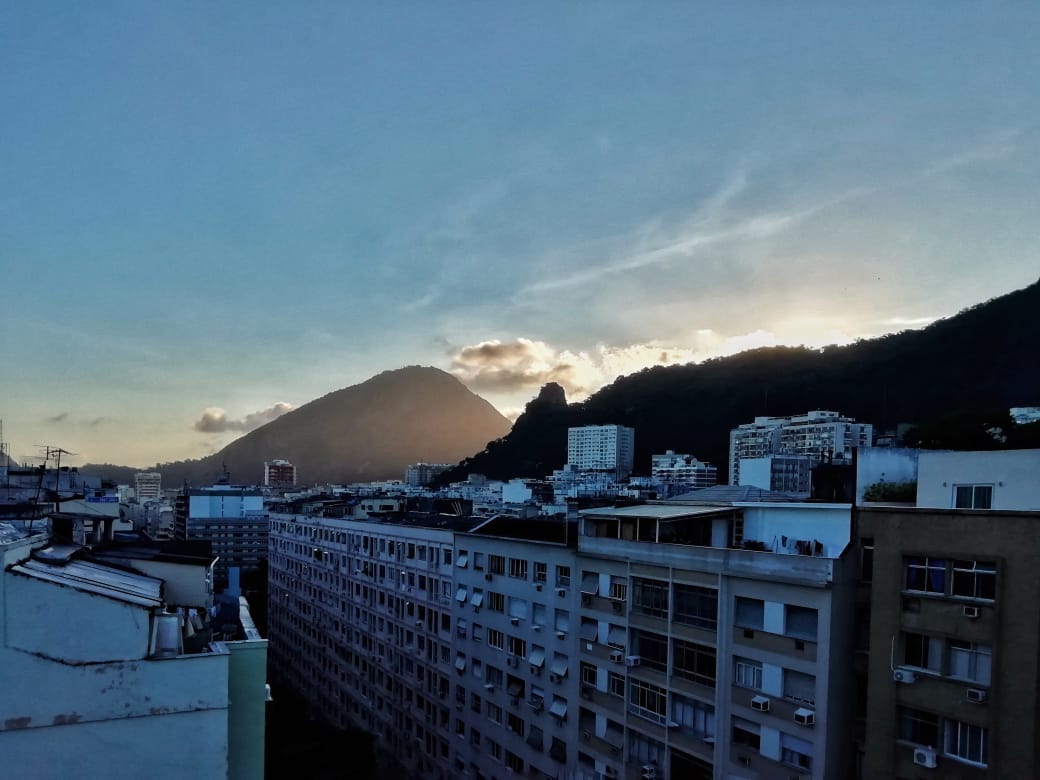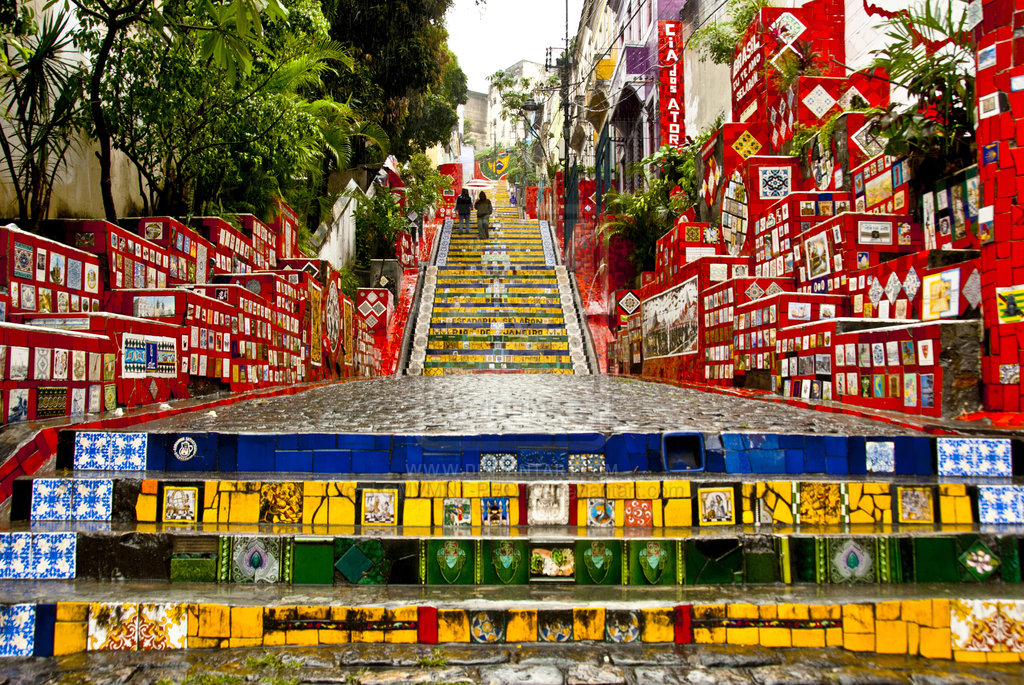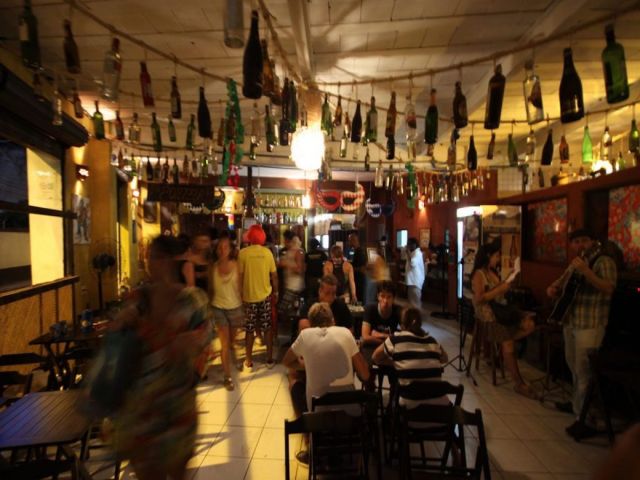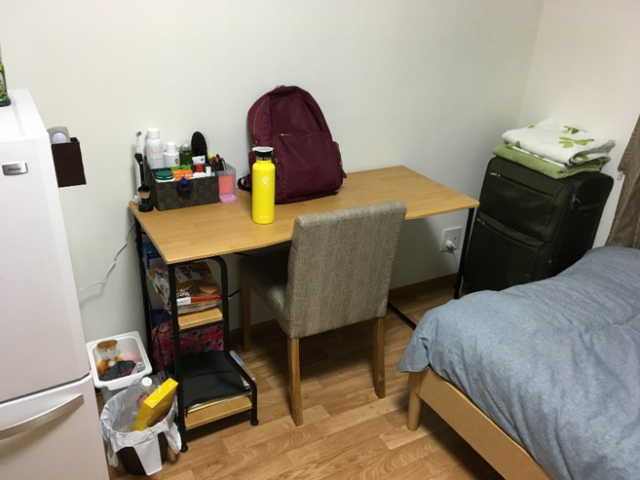Living in Rio de Janeiro: “It’s easy! Except I decided to arrive during the busiest time”

Daiana's living room in Botafogo. (Photo: Daiana Contini)
When I started looking for a room in Rio de Janeiro, I didn’t feel that stressed because I’d already gone through the pain of house-hunting in Copenhagen, which we all know is the worst housing market in the world for foreign students. So I felt like anything could be easier than that. And I was right, except I decided to arrive during the busiest time in Rio: Carnival.
Arriving exactly during the Carnival and the summer season meant that most of the rooms were booked for tourists’ short-term stays, and therefore nothing for longer periods; in addition, rooms are more expensive than ever during this time of year. Usually, I’d have booked a hostel for a few days while doing viewings, but since one week at a hostel would have cost me more than a month of regular rent, I decided to book a room for a month, and then go from there.
Airbnb works great in Rio and gives you very good flexibility if you’re not sure you want to commit to a very long period in one house. If you book a room for a whole month, usually landlords give you a discount. Airbnb also gives you security, since everything is processed and verified through the website, so you can easily find a place before physically being in the city. One thing you can do is rent a place for a few weeks, see if you like the neighborhood, and then arrange with the landlord to pay them a monthly rent directly.

Another good site to look for a room as an exchange student is RoomGo. This site is more useful once you’re in Rio, as the website doesn’t process payments or verify the houses. In this case, it’s always wise to go see the house first and make sure you have a signed contract. Most of the houses on RoomGo are advertised by and shared with Brazilians, so this is a good option if you want to live with locals and improve the language. RoomGo is what I used the most, both for my first month in the neighborhood of Botafogo, and later for my current house in Copacabana where I live with 4 Brazilians, 1 German and 1 Spaniard.

When looking for a house in Rio, security is of course one big concern. But it shouldn’t stop you from considering areas outside the famous Zona Sul (South Zone), which comprises the neighborhoods of Leblon, Ipanema, Copacabana, Urca, Botafogo, Flamengo and Laranjeiras. Besides these areas, you can find some great places in the area of Centro (Gloria, Catete, Santa Teresa, Lapa), which are known for being a little bit sketchier at night, but nothing to lose sleep over. One important thing to consider is where you’ll spend most of your time studying or working. Traffic in Rio can be a pain, and you want to avoid spending too much time in public transport. The metro serves most of the neighborhood mentioned above, but not all of them. So make sure you check that in advance.
The South Zone
Leblon and Ipanema are the most upper-class and affluent neighborhoods in the city where mostly rich Brazilians, expats or tourists choose to live. It’s very safe and very aesthetic because of the tree-lined streets that provide shade and a hygge feeling. However, in my opinion, these areas are the least Carioca (native of Rio) you can find as they lack a bit of local life. Also, they’re the most expensive neighborhoods in the city, especially Leblon. But if you plan on working in the West/South Zones, or you’re doing your exchange at PUC (Pontifical Catholic University), this can be a convenient place to stay. Also the iconic Ipanema beach is a few blocks away.

Copacabana is one of the most popular neighborhoods among tourists and expats alike. It’s generally quite safe, even though it can get a bit shady at nighttime. It’s very crowded and noisy. So if you like quiet living, I wouldn’t recommend staying here. Anyway, if you like being conveniently close to anything you might need and only a few footsteps away from the beach, this is the place to be. Regardless of its popularity, Copacabana shared flats can be surprisingly affordable.
Botafogo, where I lived for a month, is a good trade-off between the convenience of Copacabana/Ipanema and the Carioca feeling of other neighborhoods such as Laranjeiras. It’s extremely well located and well connected to both the South and North Zones. There aren’t too many tourists, the beach is relatively near and the neighborhood is very safe. Due to its great nightlife, with bars staying open until sunrise, you’ll almost always find people in the streets when walking home.

Flamengo is another good option, similar to Botafogo, but more residential. Close to the beautiful Aterro do Flamengo, the largest park in the city, with a nice view over the Guanabara Bay and the Sugarloaf Mountain. The park boasts a long tradition of sports and outdoor activities, so it’s perfect if you’re an active person who likes to go jogging, do outdoor exercise or just use the basketball and football courts throughout the area. Flamengo is also very well connected, especially if you need to work or study in Centro or in the North Zone. Just as safe as Botafogo and with a lot of local life going on.

Centro
Centro can also be an option if you’re looking for something more affordable, as it’s a bit further away from the beach. This area can be sketchier at night compared to the South Zone, but I’ve met foreigners living here who’ve never had a single problem. It’s important to be careful and aware of your surroundings anywhere in the city. The upside is that this area has a very vibrant local life and nightlife too.


Gloria and Catete are good alternatives, very much Carioca, bustling with people during the day and well connected to both the North and South Zone via the subway. Finally, the artsy neighborhood of Santa Teresa is also an option to consider. It’s very affordable, with great food, unique nightlife and cool art studios. It can be a bit of a pain to get around because it’s up- and downhill, but the views are definitely worth it.





































































































































Comments